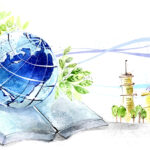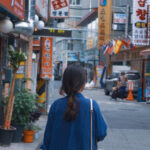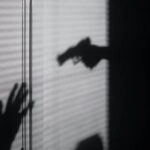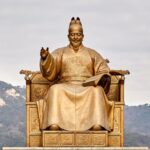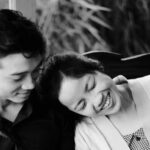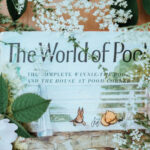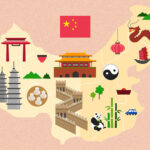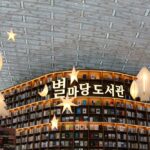
For the avid readers out there who are just now dipping their feet into the beautiful wide world of Korean literature, we’ve got good news—the realm of Korean literature is far more expansive than you might think.
For years, Korean authors have been creating masterpieces, but only recently have they become major players on the world’s stage. Most specifically in the realm of dark, transgressive, and challenging fiction—something American readers seemingly cannot get enough of.
The good news? There’s an ever-growing, expansive list of best-selling Korean authors out there who are filling the shelves with stunning and addictive literature. The bad news? It can be incredibly hard to choose where to start.
If you’re on the hunt for a new book you can’t put down—one that features memorable, poignant characters in a whirlwind of aesthetic value and social justice and truth—we advise you to look no further than this list of Korean authors.
Why? Because these Korean authors (and the book recommendations we’ve mindfully paired them with) are best sellers—tried-and-true talents who have proven they have something magnificent, compelling, and unique to bring to the table.
Our suggestion? Start with this list, but know that it isn’t the end. The list of best-selling Korean authors is growing every day, and with it, the list of must-read Korean literature just waiting to stack your bookshelves and infiltrate your mind.
Drifting House by Krys Lee
The recipient of the Rome Prize, the Story Prize Spotlight Award, the Honor Title in Adult Fiction Literature from the Asian/Pacific American Libraries, and more, Krys Lee is no stranger to accolades. And though she’s first and foremost an author, she’s also an assistant professor of creative writing and literature at Yonsei University Underwood International College in South Korea.
Our recommendation, Drifting House, is a collection of short stories that challenge and compel, dealing directly with the lives of Koreans who feel out of place—whether in North Korea or in Los Angeles. These stories can be especially difficult to read, tending to delve into less-than-sunny topics and lingering long after the books have been read.
But that’s the beauty of Lee’s writing—it’s honest, it’s direct, and it’s haunting, all with the intent to challenge and shed much-needed light in the darkest of places.
Another recommended work by Lee includes How I Became a North Korean.
Fox Girl by Nora Okja Keller
Born in South Korea, Nora Okja Keller is a Korean American author whose breakthrough work of fiction Comfort Woman skyrocketed her to best seller status in 1997. Her second book, Fox Girl, focuses on the culture of comfort women—those who were forced into sex work during World War II.
Keller has a reputation for writing literature that often feels hard to take and challenging to continue—but not for lack of tact. Her skilled writing takes a beautiful, edgy look at topics that are hard to bear, but she does so in a way that’s downright revolutionary.
Please Look After Mom by Kyung-sook Shin
Kyung-sook Shin isn’t just a best-selling author—she’s also the first woman to win the Man Asian literary award. In 2012, she conquered this award with her best-selling book Please Look After Mom. Shin’s book sold ten million copies in Korea alone, and delicately but boldly deals with the topic of han. Han can be translated as the process of dealing with “a feeling of sorrow and oppression,” or prolonged sadness.
The Interpreter by Suki Kim
Suki Kim—an investigative journalist, essayist, and best-selling author—is also one of the only writers alive to have lived undercover in North Korea for immersive journalism.
Born and raised in South Korea, Kim became a sensation when she released her New York Times’ best-selling memoir, Without You, There Is No Us: Undercover Among the Sons of North Korea’s Elite, a look into teaching English to the sons of North Korea’s 1 percent.
Her later work, The Interpreter, was published in 2003 and tells the fictional story of a court interpreter in New York City dealing with the double homicide of her parents, a crime that might not be a random act of violence. Mostly, this work of fiction focuses on the Korean immigrant experience in the United States as well as the voice of a person who’s hopelessly wedged between two cultures, each pulling her in different directions.
The White Book by Han Kang
A star in Korea, Han Kang is best known for her popular novella series The Vegetarian (her first to be translated into English), but personally, we cannot recommend The White Book (and literally everything else by Kang) enough.
Kang has a long list of publications including full-length books, poetry, and collections of short stories. Though she gained global notoriety for The Vegetarian, her other work, including The White Book, is a steady and staunch reminder of her limitless talent.
Unlike her other books, The White Book is a collection of her most experimental works—and further, is deeply personal. Mostly, it journeys through grief as Kang herself narrates her revelation of being haunted by the memory of her older sister who died just a few hours after she was born. This book is intimate, personal, and moving—and beautiful in a different way than Kang’s other works.
Other notable reads by Kang? Of course, The Vegetarian, but don’t rush to that without also reading Human Acts.





